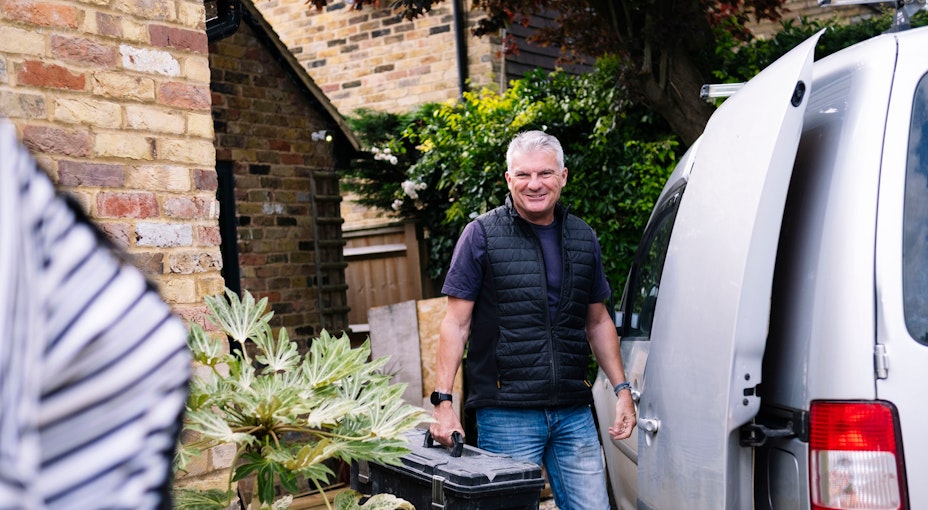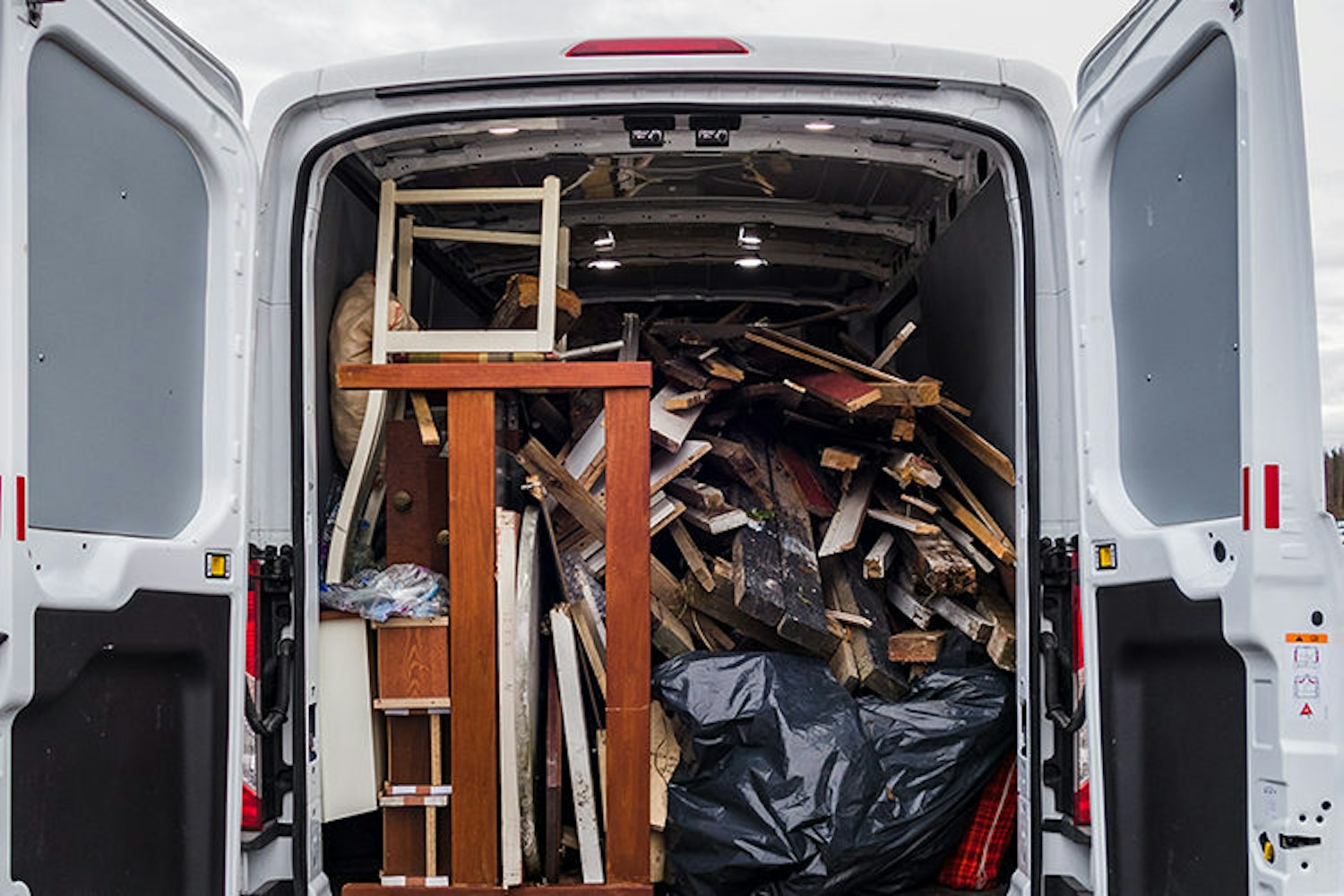Carriage of own goods explained
If you’re using your van to carry tools, equipment or stock, it’s vital to make sure your van insurance gives you the cover you need.
18.07.25
By
![]() Tom Head
Tom Head

In addition to providing a safety net, a tailored policy that reflects the way you use your van will ensure you stay on the right side of the law. Here, we look at what carriage of own goods means and, most importantly, who needs it.
What does carriage of own goods mean?
Carriage of own goods is a type of commercial (business) van insurance which insures you to drive your vehicle while transporting your own tools, goods and materials. Policies typically don’t provide cover for the goods themselves.
What’s the difference between carriage of own goods and carriage of goods for hire and reward?
Both of these are types of business van insurance, but they cover two distinct uses:
Carriage of own goods is for transporting your own items related to your business.
Carriage of goods for hire and reward allows you to deliver goods for others in exchange for payment (for example, if you were a courier).
It might seem like a small distinction, but having the wrong insurance will invalidate any policy you have. So, if you take out a policy for carriage of own goods but are actually delivering parcels on behalf of other businesses, your policy would be invalid.
In the eyes of the law, driving with the wrong insurance is a ‘strict liability offence’. This means you can be penalised even if your actions were unintentional.
What’s the penalty for driving with the wrong insurance?
An invalid policy is the same as if you had no insurance. The penalty for driving without insurance is a fine and up to eight penalty points. If you’re taken to court, you could be disqualified from driving, and your van could be seized and destroyed.
What does carriage of own goods insurance cover?
Carriage of own goods describes the way you use your vehicle (its class of use). It’s also known as business van insurance and enables you to use your van to carry items you need for work, for example:
Carrying tools, materials and equipment in relation to your work.
Transporting goods from one premises to another.
What your policy covers will depend on the level of cover you choose (third party only; third party, fire and theft; and comprehensive), plus any specifics listed within your plan.
What isn’t covered?
Carriage of own goods cover typically doesn’t insure the goods themselves. It also does not cover items you’re delivering on behalf of others. For example, it doesn’t insure you for courier deliveries.
Policies don’t cover the transportation of harmful or hazardous materials either, including fuel or chemicals (you’ll need a specialist policy instead).
Who needs carriage of own goods insurance?
Carriage of own goods is aimed at anyone carrying work-related items they own in their van. This includes:
Tradespeople who travel with tools, equipment, and materials, such as builders, plumbers, and electricians.
Caterers delivering food they have prepared.
Florists transporting their own arrangements.
Mobile hairdressers carrying their own equipment.
Businesses moving equipment to sites.
What is goods in transit insurance?
Typically, goods in transit insurance covers items being transported for other people. In other words, it’s insurance for items you don’t own, like parcels delivered on behalf of online shops. These policies cover costs incurred if items are stolen, damaged, or destroyed during transportation.
It’s important to know that goods in transit cover is not the same as carriage of goods for hire and reward. Hire and reward insurance simply means you’re allowed to use your van to deliver goods. Goods in transit insurance covers the actual items you’re delivering.
Who needs goods in transit insurance?
If you’re transporting goods, then goods in transit insurance is worth considering. It’s particularly important if you’re a courier delivering parcels or if you’re transporting equipment from one business premises to another.
If you also want to protect your own tools and equipment, you may need to consider tools in transit insurance, which provides more comprehensive protection. If you’re not sure whether you need it, it’s best to speak with an expert.
What affects the cost of carriage of own goods insurance?
Cost varies depending on your own circumstances, but insurers will typically consider:
The type of van you drive.
Your van’s security (for example, if you have an alarm or immobiliser).
The value of the items you’re transporting and what they are.
Your claims history (a recent claim in the last five years can increase premiums).
Your location.
Tips for reducing the cost of carriage of own goods insurance
While cost is important, van insurance is your financial safety net if your vehicle and tools are stolen or damaged. To keep premiums down without compromising on protection, consider:
Improving your van’s security.
Choosing a higher excess.
Paying for your policy annually instead of monthly.
Maintaining a clean driving licence with no penalty points or driving convictions.
Using an expert broker to source and compare quotes for you.
FAQs
No. Carriage of own goods is a type of business van insurance that you’ll need to specify when you take out a policy.
If you’re carrying your own belongings (such as tools and equipment), your insurer may ask to see receipts as proof of ownership if you make a claim. If you’re delivering items on behalf of other businesses, delivery notes and invoices could be used instead.
Generally, no. If you’re leaving tools in your van overnight or for a longer period, you may need separate tools in transit cover for your van. Your broker or provider will be able to take you through your options.
Business van insurance expertise from Alan Boswell Group
Commercial van cover can be complicated, but whether you need minibus, transit, or splitter van insurance, our experts can tailor policies to suit you.
We offer flexible cover designed to fit around your needs, even if you’re insuring a van on a budget, so you can continue with business as usual.
For a quote or help choosing the right van insurance, speak to a member of the team.
Send an enquiry
Related guides and insights

Does van insurance cover tools?
Tool theft from vehicles is on the rise. We look at whether van insurance covers the costs of stolen tools and what you can do to minimise the risk of theft.

What type of van insurance do I need?
Not having the right van insurance can lead to an unlimited fine and up to eight penalty points. Here’s how to decide what policy’s right for you.

The dangers of overloading your van
If a van gets stopped for overloading and is also found to suffer mechanical defects, it could result in a court appearance or large fine.
